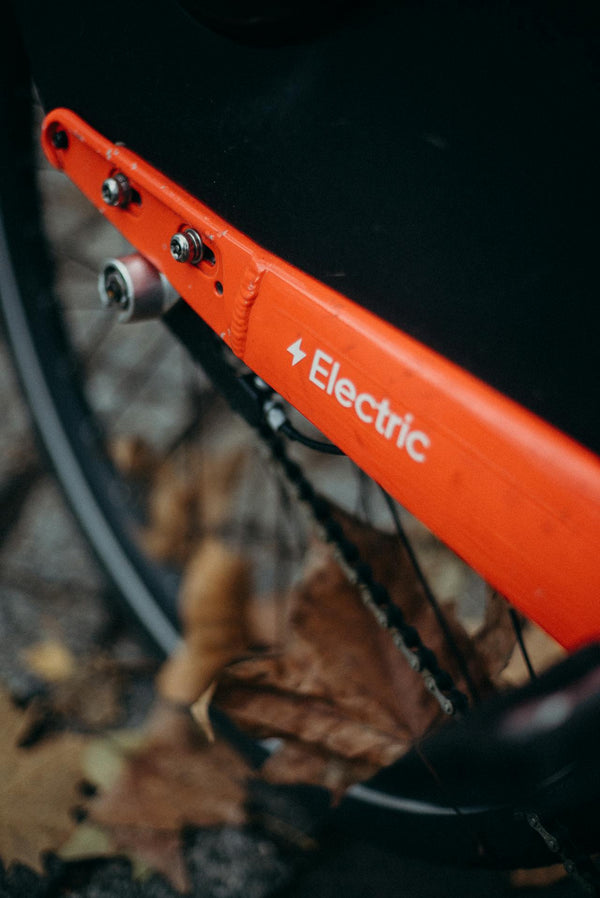Do Electric Bikes Need Insurance?
May 28, 2024
List of Contents
- Do electric bikes need insurance?
- Understanding electric bike insurance
- Legal requirements for e-bike insurance
- Types of electric bike insurance
- Factors influencing e-bike insurance costs
- How to choose the right e-bike insurance
- E-bike statistics
- Conclusion
Do Electric Bikes Need Insurance?
Electric bikes, or e-bikes, have gained significant popularity in recent years due to their convenience and eco-friendly nature. With advancements in technology, these bikes have become a popular alternative to traditional bicycles and even cars for many people. However, with the rising number of e-bikes on the roads, one question that arises is: do electric bikes need insurance?
Understanding Electric Bike Insurance
Before we delve into the question of whether e-bikes need insurance, let's first understand what electric bike insurance entails. Electric bike insurance is a specialised insurance policy that provides coverage specifically for e-bikes. It offers protection against various risks and liabilities that e-bike owners might encounter while riding their bikes on public roads or even in private spaces.
When it comes to electric bike insurance, there are several key components to consider. In addition to the standard coverage for accidents, theft, and damage, some policies also offer roadside assistance for e-bikes that break down while out on a ride. This can be particularly helpful for e-bike owners who rely on their bikes for daily commuting or long-distance travel.
What is Electric Bike Insurance?
Electric bike insurance is designed to protect e-bike owners from potential financial losses resulting from accidents, theft, or damage to their bikes. It typically covers costs such as repair or replacement of the e-bike, medical expenses in case of an accident, liability coverage, and even legal expenses in some cases.
Moreover, electric bike insurance can vary in terms of coverage options and premiums based on factors such as the value of the e-bike, the rider's experience and history, and the intended use of the e-bike. Some insurance providers may offer customizable policies that allow e-bike owners to tailor their coverage to suit their individual needs and budgets.
Why Consider Insurance for Your E-Bike?
While it may be tempting to assume that e-bikes do not require insurance due to their lower speeds compared to cars or motorcycles, there are several reasons why considering insurance for your e-bike is a wise decision. Firstly, accidents can happen even at lower speeds, and the cost of repairs or medical bills can quickly add up. Additionally, e-bikes are often targeted by thieves due to their high resale value, and having insurance can provide peace of mind in case of theft.
Furthermore, some jurisdictions may require e-bike owners to have insurance coverage, especially if the e-bike is classified as a motor vehicle under local laws. By ensuring that your e-bike is properly insured, you can avoid potential legal complications and fines while enjoying the benefits of financial protection in case of unforeseen events.

Legal Requirements for E-Bike Insurance
Now that we understand the importance of electric bike insurance, let's explore the legal requirements surrounding it.
State Laws Regarding E-Bike Insurance
The legal requirements for e-bike insurance vary from state to state. Some states do not require insurance for e-bikes that fall within specific power limits or have a maximum assisted speed. However, it is essential to check the specific laws in your state to understand your obligations as an e-bike owner.
Federal Regulations on Electric Bikes
At the federal level, electric bikes are classified into three categories: Class 1, Class 2, and Class 3. Class 1 and Class 2 e-bikes have a maximum assisted speed of 20 mph, while Class 3 e-bikes have a maximum assisted speed of 28 mph. These classifications may impact the requirements for insurance, so it is vital to be aware of the specific regulations in your area.

Types of Electric Bike Insurance
Electric bike insurance policies typically offer different types of coverage to meet the diverse needs of e-bike owners. Let's explore some of the common types of insurance that you may consider for your e-bike.
Liability Insurance for E-Bikes
Liability insurance is an essential component of electric bike insurance. It provides coverage for bodily injury or property damage caused by the insured e-bike to third parties. This coverage ensures that if you are involved in an accident that causes harm to others or damage to their property, you are protected from potential legal and financial consequences.
Comprehensive Coverage for Electric Bikes
In addition to liability insurance, you may also opt for comprehensive coverage for your e-bike. This coverage includes protection against theft, loss, or damage to your e-bike due to various events such as accidents, fire, vandalism, or natural disasters. Comprehensive coverage provides a higher level of protection for your investment.

Factors Influencing E-Bike Insurance Costs
When determining the cost of electric bike insurance, several factors come into play. Understanding these factors can help you make an informed decision when choosing the right insurance policy for your e-bike.
The Impact of Bike Value on Insurance Rates
The value of your e-bike plays a significant role in determining your insurance rates. Higher-priced e-bikes typically come with higher insurance premiums, as the cost of repairing or replacing these bikes is higher. It is important to consider the value of your e-bike when assessing the coverage limits and premiums.
How Rider's Age and Experience Affect Insurance Costs
Insurance companies also consider the rider's age and experience when calculating insurance costs. Younger riders and those with less experience may be deemed higher risk by insurance providers, resulting in higher premiums. Conversely, riders with a clean riding record and years of experience may be eligible for lower insurance rates.

How to Choose the Right E-Bike Insurance
Now that we have explored the various aspects of electric bike insurance, let's discuss how to choose the right insurance policy for your e-bike.
Understanding Your Coverage Needs
Begin by assessing your specific coverage needs. Consider the value of your e-bike, the level of risk you are comfortable with, and any legal requirements in your area. Thoroughly read and compare insurance policies to ensure they provide adequate coverage for your unique circumstances. Whether you have an off-road scooter like the Ducati Scrambler Cross-E or an impressive 8Tev B12 Roam, both will benefit from being properly insured.
Comparing Insurance Providers and Plans
It is essential to compare different insurance providers and their plans to find the one that best meets your requirements. Look for reputable insurance companies with a history of providing reliable coverage for e-bikes. Consider factors such as coverage limits, deductibles, premiums, and any additional benefits or discounts offered.

E-Bike Statistics Choose the Right E-Bike Insurance
- There are expected to be just under 77.2 million e-bikes by 2030.
- The e-bike market is predicted to generate approximately $53.5 billion US dollars in revenue by 2027.
Conclusion
In conclusion, while electric bikes may not be legally required to have insurance in all areas, obtaining insurance for your e-bike is a prudent decision. It provides protection against potential risks and liabilities, ensuring that you can enjoy your e-bike with peace of mind. Consider your specific needs, legal requirements, and available insurance options to choose the right coverage for your e-bike.






